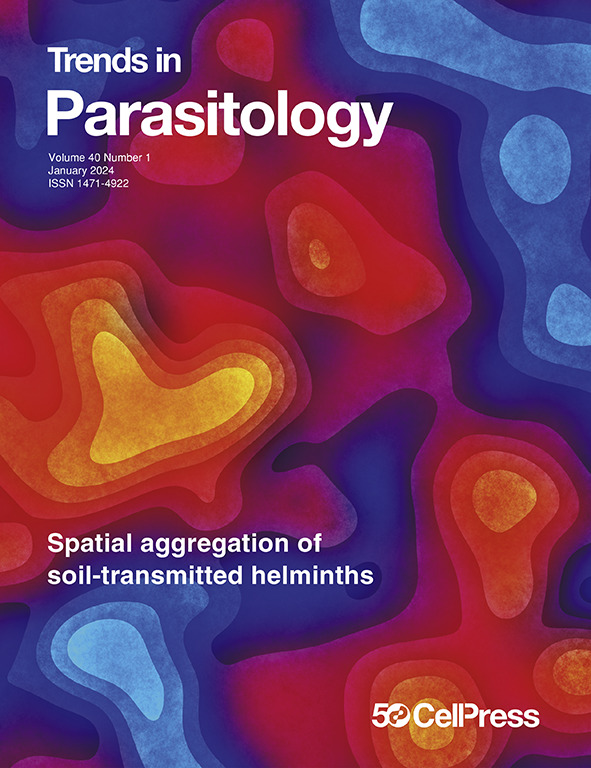REL2/NF-κB通路调节冈比亚按蚊中肠细菌稳态。
IF 6.6
1区 医学
Q1 PARASITOLOGY
引用次数: 0
摘要
zakoviki等人最近的一项研究表明,破坏蚊子体内的REL2可诱导以沙雷氏菌为主的肠道生态失调,增加蚊子吸血后的死亡率,并意外降低对疟疾感染的易感性。这些发现揭示了宿主免疫、肠道微生物群和疟疾寄生虫发展之间复杂的、功能上重要的相互作用。本文章由计算机程序翻译,如有差异,请以英文原文为准。
REL2/NF-κB pathway modulates midgut bacterial homeostasis in Anopheles gambiae.
A recent study by Zaković et al. demonstrates that disruption of REL2 in mosquitoes induces gut dysbiosis dominated by Serratia species, increases mosquito mortality after blood feeding, and unexpectedly reduces susceptibility to malaria infection. These findings reveal complex, functionally significant crosstalk between host immunity, gut microbiota, and the development of malaria parasites.
求助全文
通过发布文献求助,成功后即可免费获取论文全文。
去求助
来源期刊

Trends in parasitology
医学-寄生虫学
CiteScore
14.00
自引率
3.10%
发文量
148
审稿时长
6-12 weeks
期刊介绍:
Since its inception as Parasitology Today in 1985, Trends in Parasitology has evolved into a highly esteemed review journal of global significance, reflecting the importance of medical and veterinary parasites worldwide. The journal serves as a hub for communication among researchers across all disciplines of parasitology, encompassing endoparasites, ectoparasites, transmission vectors, and susceptible hosts.
Each monthly issue of Trends in Parasitology offers authoritative, cutting-edge, and yet accessible review articles, providing a balanced and comprehensive overview, along with opinion pieces offering personal and novel perspectives. Additionally, the journal publishes a variety of short articles designed to inform and stimulate thoughts in a lively and widely-accessible manner. These include Science & Society (discussing the interface between parasitology and the general public), Spotlight (highlighting recently published research articles), Forum (presenting single-point hypotheses), Parasite/Vector of the Month (featuring a modular display of the selected species), Letter (providing responses to recent articles in Trends in Parasitology), and Trendstalk (conducting interviews). Please note that the journal exclusively publishes literature reviews based on published data, with systematic reviews, meta-analysis, and unpublished primary research falling outside our scope.
 求助内容:
求助内容: 应助结果提醒方式:
应助结果提醒方式:


